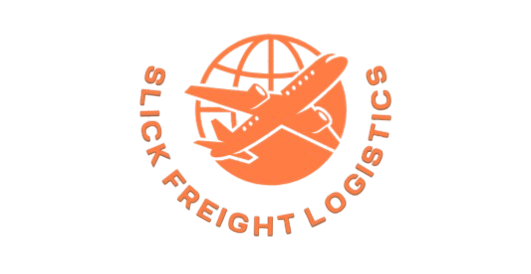Logistics is the invisible force driving the global economy. Behind every product you see on store shelves or online, there’s a complex network of transportation, warehousing, and supply chain management. In this article, we’ll explore how modern logistics has evolved, its critical role in international trade, and how companies like Slick Freight Logistics are leading the way in transforming the industry.
The Global Logistics Industry: An Overview
The logistics industry plays a pivotal role in ensuring that goods reach their destinations on time, safely, and cost-effectively. According to the Council of Supply Chain Management Professionals (CSCMP), the global logistics market was valued at approximately $8.1 trillion in 2020 and is expected to grow at a compound annual growth rate (CAGR) of 6.5% from 2021 to 2028.
Logistics covers a broad spectrum of activities:
- Transportation: Moving goods via trucks, rail, air, and sea.
- Warehousing: Storing goods in strategic locations.
- Inventory Management: Tracking and controlling stock.
- Supply Chain Management: The coordination of these activities to ensure efficiency and effectiveness.
The Importance of Freight and Transportation
In the context of logistics, freight transportation is arguably the most essential function. The International Transport Forum (ITF) reports that global freight volume is expected to increase by 40% by 2050, with road freight continuing to dominate, accounting for nearly 70% of all freight transport globally.
The Role of Trucks and Containers in Modern Logistics
Trucks and containers have revolutionized freight transportation, providing flexibility and scalability for both short and long-distance transport. Containerization, which started in the 1950s, transformed global trade by allowing goods to be transported efficiently and securely across different modes of transportation—sea, rail, and road.
Trucks, which form the backbone of inland transportation, are responsible for carrying goods from ports to warehouses and final destinations. As of 2021, there were an estimated 3.7 million trucking companies in the U.S. alone, with over 80% of goods being transported by truck.
Technological Innovations in Logistics
The logistics industry is undergoing a technological renaissance, with innovations that improve speed, reduce costs, and increase transparency.
1. Artificial Intelligence (AI) and Machine Learning
AI is helping logistics companies optimize routes, predict demand, and improve inventory management. For instance, AI-powered route optimization reduces fuel consumption and delivery times, cutting costs significantly. It also allows companies to predict delays and take preemptive actions.
2. Blockchain Technology
Blockchain is being explored to improve transparency and traceability in supply chains. By recording every transaction or event on a secure, immutable ledger, it enables all stakeholders in the supply chain to track goods in real time, minimizing fraud and errors.
3. Internet of Things (IoT)
IoT devices embedded in trucks, containers, and warehouses allow for real-time monitoring of shipments, ensuring that temperature-sensitive goods, for example, are transported under optimal conditions.
4. Autonomous Vehicles
The advent of self-driving trucks and drones promises to disrupt the logistics industry. Autonomous vehicles can operate around the clock, reducing human error and labor costs while improving efficiency.
How Slick Freight Logistics is Leading the Way
At Slick Freight Logistics, we are at the forefront of this transformation, continually embracing innovation to improve our services. With a global network of partners and state-of-the-art technology, we offer comprehensive logistics solutions that are fast, reliable, and cost-effective.
Key Features of Our Services:
- Global Reach: With operations spanning multiple continents, we are equipped to handle both domestic and international shipments, offering flexibility and speed.
- AI-Driven Efficiency: Our AI-powered tools optimize routes and inventory management, ensuring that your goods are delivered on time and under budget.
- Sustainability Commitment: We are committed to reducing our environmental footprint by adopting eco-friendly practices, such as using alternative energy vehicles and optimizing delivery routes to minimize emissions.
- 24/7 Customer Support: Our dedicated customer service team is available around the clock to assist with any inquiries or issues, ensuring a seamless experience for our clients.
The Future of Logistics
The logistics industry is on the brink of major transformations, and at Slick Freight Logistics, we are committed to staying ahead of the curve. As new technologies emerge, we continue to refine our services to ensure that we provide the most efficient and sustainable solutions for our clients.
Key Trends to Watch:
- Sustainability Initiatives: As consumers and businesses alike push for greener practices, logistics companies will continue to invest in sustainable technologies, such as electric trucks and renewable energy-powered warehouses.
- E-commerce Boom: The rise of e-commerce, accelerated by the COVID-19 pandemic, will continue to fuel growth in logistics, driving demand for faster, more flexible delivery options.
- Smart Warehousing: Automation in warehousing, including robotics and AI-driven inventory systems, will increase efficiency, reduce human error, and speed up fulfillment times.
Conclusion
Logistics is the backbone of modern trade, facilitating the movement of goods and connecting businesses across the globe. With technological advancements driving efficiency and sustainability, companies like Slick Freight Logistics are ensuring that the future of logistics is fast, reliable, and greener. As global trade continues to evolve, we remain committed to providing innovative solutions that meet the demands of tomorrow’s economy.


